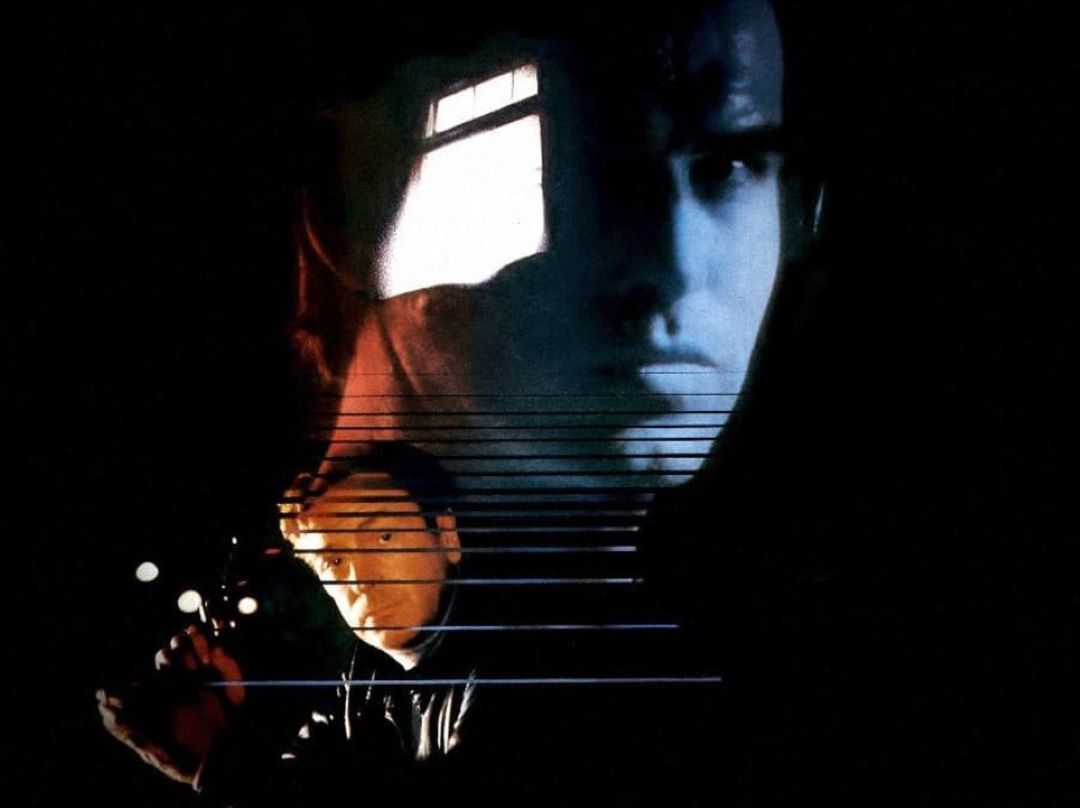In 1968, at the height of the Cold War, an East-West agreement between Britain, the US, and the USSR is established to halt nuclear proliferation. One of its clauses, the Fourth Protocol, forbids the non-conventional delivery of a nuclear weapon to a target.
Now, as the Cold War enters the endgame, the three-way tension between the Kremlin, the military, and the KGB that is a feature of Soviet politics, is stretched as one of them hatches a plan.
Meanwhile, in London, MI5 officer John Preston breaks into the residence of British government official George Berenson on New Year’s Eve and makes a discovery that shows Berenson has unwittingly betrayed his country to the Kremlin.
With the Director General of the Security Service battling a terminal illness, and acting Director of MI5 Brian Harcourt-Smith at loggerheads with Preston, will a divided MI5 be able to identify the true nature of the threat in time?
In Russia, two old comrades also suspect something is afoot, but they must tread carefully as Soviet politics are still dangerous to the unwary.
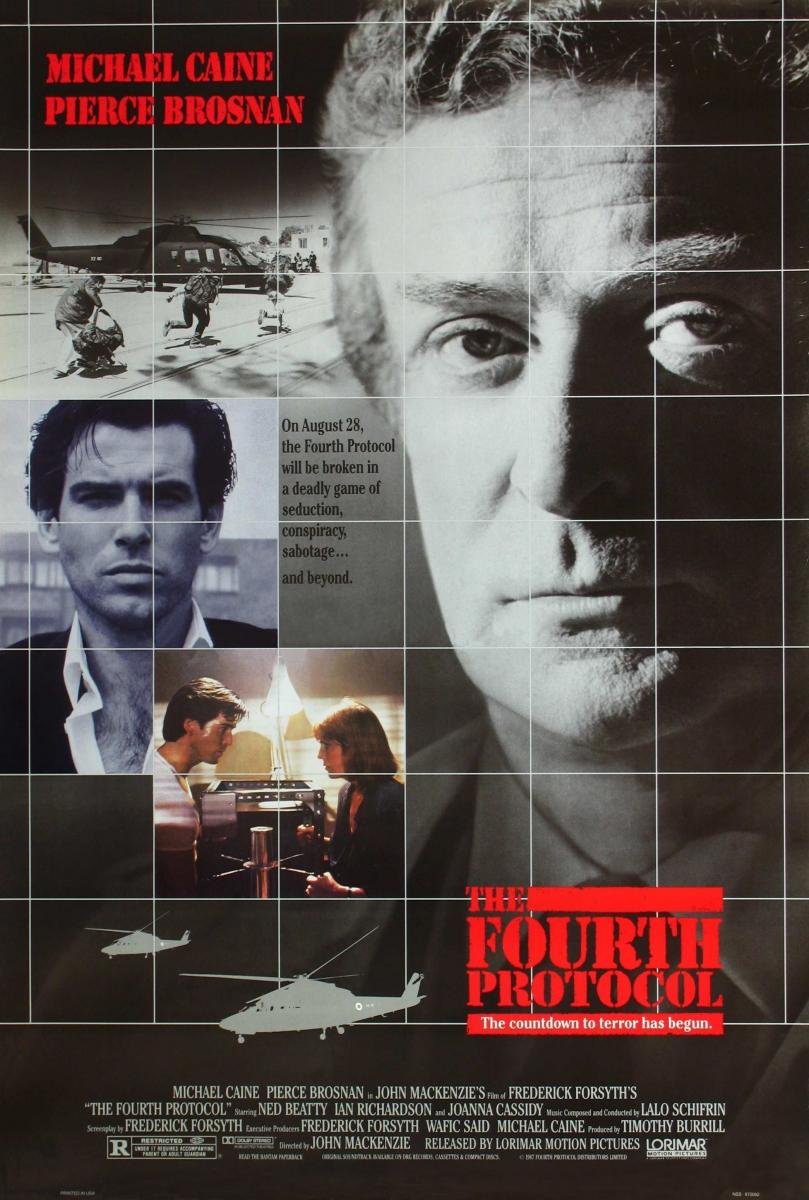
The Fourth Protocol is a superb espionage thriller, made in the dying days of both the Cold War, and the British distributor The Rank Film Company. Somehow it manages to fly largely under the radar. This is a shame as it is very high quality. It has a genuine Cold War vibe to it.
The first thing that stands out is the cast.
Michael Caine is the lead as John Preston. Preston is an effective, seasoned operator yet he is Old School. He is well-regarded by the older, established MI5 leadership, but this incoming acting Director is no fan of Preston or his methods.
This sets up the tension that allows Caine to play the role with a combination of weariness and a sense of duty. He also sports a magnificent array of roll-neck sweaters and rocks an 80’s middle-aged man casual jacket in an assortment of blues and greys in a way that only Caine could ever manage.
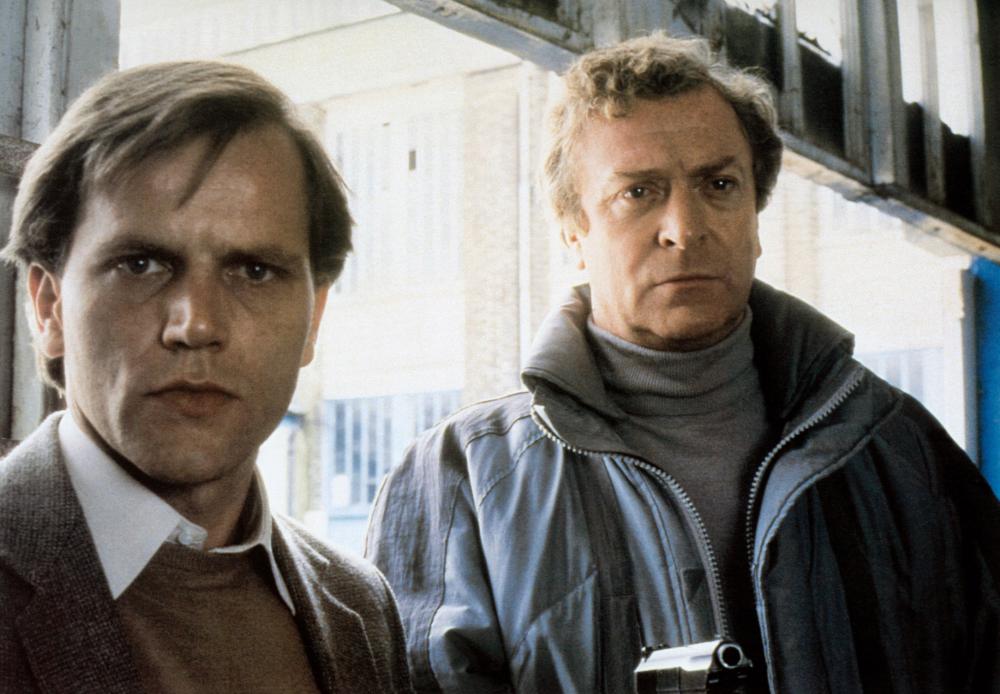
He is up against a pre-Bond Pierce Brosnan, who at this time had just missed out on the role of 007 to Timothy Dalton after his Remington Steele contract was renewed at the last minute. If he hadn’t already had, and then lost, the role of 007 you could swear this was his Bond audition.
As it is, he may have been working out his frustrations at losing the role of Bond here. He is a chillingly effective killer, a man who barely bats an eyelid when it is explained to him that he is about to kill between 2,000 and 5,000 people. He also plays out sexual frustration in some interesting ways.
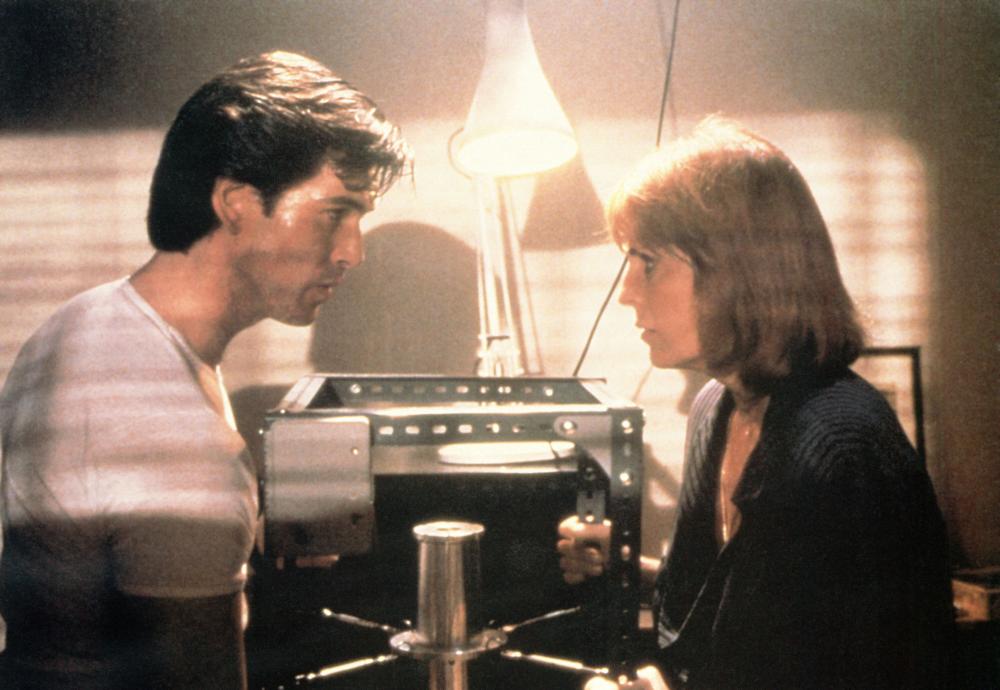
The supporting cast includes Ned Beatty, Joanna Cassidy, Julian Glover, Michael Gough, Ray McNally, Ian Richardson and Anton Rodgers. It is an exceptional cast for a production birthed from the struggling British film industry of the mid-1980s.
Glover is great fun as Preston’s asshole new boss. Not the director, but as he is forcibly reminded by Preston:
“Acting Director, sunshine!”
The rest of the supporting cast give you “Hey, it’s that guy!” moments throughout. The plot unfolds across London and the dachas for the elites outside Moscow. It is also set in some areas of the UK up the East Coast that don’t get a lot of screen time, traditionally.
This all gives it a sense of gritty realism a world away from usual the Mission: Impossible or James Bond-type spy action.
What could get bogged down in a focus on port security, hidden transmitters in East Anglia, and the technical specifics of building a functioning nuclear weapon actually flows by with ease. There is very little in the way of large-scale action. Instead, it is a lot of small moments that build and build until a finale that leaves you on the edge of your seat.
It demonstrates actual tradecraft and espionage. This is not surprising as the story, and the script, come from the pen of Frederick Forsyth. Forsyth is a spy thriller writer of the highest caliber, perhaps in a bracket of only two alongside John Le Carre.
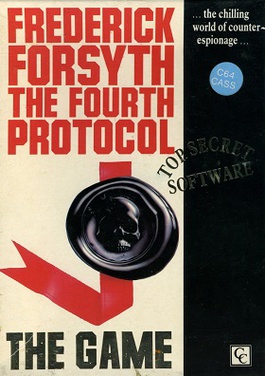
Whereas the works of Tom Clancy can frequently lapse into Team America “Fuck Yeah!” worship of office and rank, and you can imagine the author nursing a semi while he recites the performance figures direct from a weapons brochure, Forsyth’s works involve the dirty end of the business. He is also so well informed that every time he publishes a novel, the establishment sweats over the content.
In his script here, as in his novel, anti-nuclear protestors sing We Shall Overcome and Keep The Red Flag Flying with no concept that they are simply useful idiots in the events that are being played out just yards away, with deadly consequences. Forsyth’s own political leanings no doubt bleed through.
The slow and steady build in The Fourth Protocol ratchets up the tension. There is also some real craft on display in the filmmaking, with rain making Geiger counter sounds on a skylight as a bomb is assembled, to smash cuts to screaming F-111 bombers to give the audience a start.
There are crosses and double-crosses as the plan is played out, right up until a surprise denouement that proves the whole world of international espionage is nothing more than a great game played largely for the benefit of those involved. A surprisingly bleak coda to the events on-screen.
Hilariously, nobody speaks in Russian or with a Russian accent. Even some Soviet written instructions are in English to avoid the need for further exposition or subtitles. Lalo Schifrin’s economical score suits it perfectly.
This movie is largely un-loved and un-discussed. However, if you are a fan of espionage stories then this is well worth your time to check it out.
Check back every day for movie news and reviews at the Last Movie Outpost


